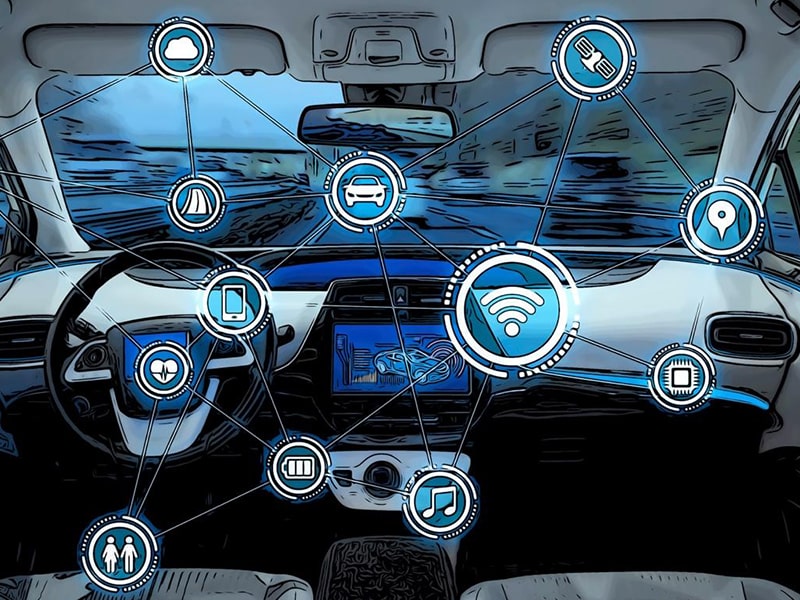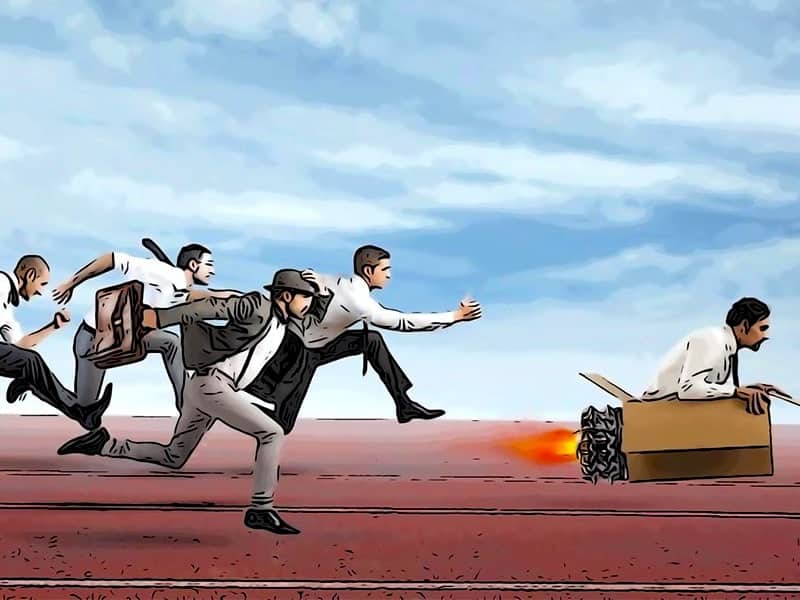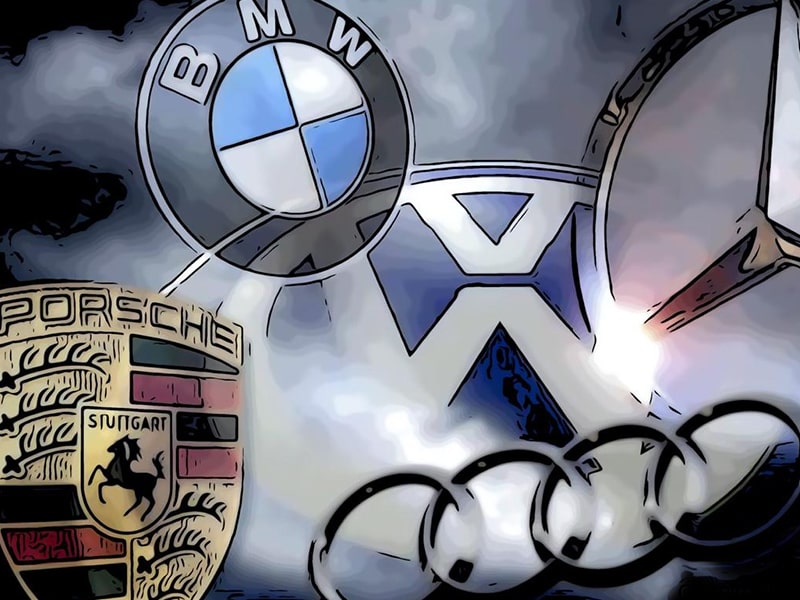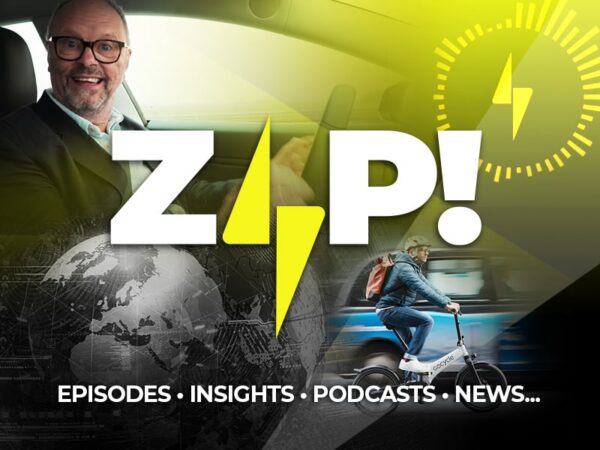
A CEO of a German car manufacturer is an Officer, a manager, maybe an Executive, but not a boss. German automakers don’t have a Chief Executive Officer as we know it in other countries, who has the task to make quite independent and sometimes difficult business decisions. Someone has the title, of course, but not the same role as you know from your country or company, and this is a big problem in times of crisis where good, fast, and clear decisions have to be made and time is not on your side.

This article explains why German automakers have culturally failed in the transition to battery-powered electric vehicles, autonomous vehicles, and Software, and why startups like Tesla have a massive advantage that the company and its CEO Elon Musk are probably not even aware of.
Culture is hard to understand when you are part of it, but even harder when you look at it from the outside. We grow up in a culture that we take for granted and expect to be the same everywhere, but we experience with amazement when we live and work abroad how diverse, different and strange the world can be. In many of my articles, I have pointed out fundamental problems that can be found in the culture of the German industry and the automotive industry. As a German who worked for American companies for more than 20 years, often reporting directly to American managers and performing international assignments, I had the opportunity to learn the ins and outs of both business cultures and how much German culture can hinder innovation and the preservation of the status quo.
If you want to understand why German CEOs play a different role than in other countries, you have to go back and try to understand German history. Until the early 19th century, Germany was not one kingdom, but many kingdoms with many capitals, currencies, and borders connected only by the same language. The pressure of an external aggressor, Napoleon, who drew new borders on the European map with blood and suffering, led after many wars to a first national revolution in 1848 and later to a single country ruled by Prussia with its capital in Berlin. Germany still had many kings, but only one unifying Kaiser, and that only for about a generation or four decades.
After World War I, the Kaiser had to step down as a strong leader, and Germany plunged into depression, instability, hyperinflation, and revolution. The first and brief unsuccessful attempt at democracy led to the call for a strong leader to ensure law and order, which led my homeland to destruction and devastation. Hitler was elected Führer and plunged the nation into an even worse war with even greater destruction. After thirteen dark years, the lesson had been learned that a strong unified figure or a party that can decide everything is a really bad idea.
After two centuries of various leaders, be they kings, emperors, or more or less elected leaders, mismanaging Germany, a country that was originally rather decentralized has decided that it is better off with decentralized structures in government and business, and has set them up accordingly. While in Germany the 16 states have a strong independent say, divided into two chambers that control each other, the decision-making rights for many decisions are decentralized and the Chancellor cannot force decisions without their support. A very similar structure to Germany’s government, which allows for checks and balances at multiple levels, has also been introduced in corporations. It has proven to be very successful and has made Germany an economic powerhouse as long as there is no time pressure for quick and clear decisions. Fast, agile, and good decisions are needed in times of war, pandemics, or rapid technological upheaval, and that is why Germany is not well prepared for the times we are in.
The German chancellor is not a king and a German CEO is not a decision-maker, because both are rather mediators between different parties in an organization or company, which they coordinate and try to bring everyone together to a compromise. No one gets everything they want, but the majority is represented. The goal is to find the right coalition within those parties to achieve decentralized decision-making that is supported by the majority of stakeholders. What we see in government structures, where neither a strong leader nor usually a strong party but a coalition governs the country, is mirrored in the organization of companies in Germany.
In a German company, management is in a position to review, confirm and, if necessary, correct the CEO, but there are many other factors at play that interfere and have influence. One of them is the representatives of the workers in the worker’s councils elected by the workers, who are the spokesperson in the communication with the management. They fight for workers’ rights, which are supported and protected by numerous laws and regulations. It is a legally guaranteed right for the workers of a company of a certain size to elect such a works council, and not the goodwill of the management to accept it. The works council is not a body of unions, although union members can be elected as members. A positive-minded workers council can be easy to work with but in many cases, they make the life of the company’s management hard.
In some German companies, workers council representatives have special rights, for example at Volkswagen, where production plans for vehicles and models in a plant are only set if the workers council agrees to them. In this respect, the works council has a major influence on management decisions, although its representatives may be ordinary workers who are not qualified for their intended role. These structures have led to many challenges and problems at Volkswagen, where corruption has been used for decades to make decisions favored by management. Whether Brazilian prostitutes, luxury vacation trips, executive salaries, or company cars that usually only top managers get, the spectrum of corruption or let’s call it ‘influence’ is huge and remains in one form or another to this day.
The power and influence of VW’s works council can be seen in a recent decision about production sites for BEV models, where CEO Herbert Diess was not even present in the respective decision meeting because he simply no longer had a say. A CEO who has no say to decide where new BEV models will be produced is not a true CEO or decision-maker, but rather a representative figure, much like the German president. This explains why a German CEO cannot make decisions that his shareholders expect him to make, and it explains why the German industry has trouble adapting quickly enough when rapid technology changes require them.
Another unique feature in Germany is the collective bargaining law, which is enshrined in law and regulation and defines a potential employee contract between unions and a company. If enough employees in a company belong to the union, they can put pressure on management to sign a contract with the unions that gives both sides certain rights, duties, and obligations. For management, the advantage is that they can avoid strikes or lengthy salary negotiations, and for workers, they have outside representation to negotiate salary increases and other benefits.
Unions have traditionally been strong in Germany and have a great deal of influence on companies and management within the federal legal framework. In the automotive industry, almost all companies have accepted contracts with unions, except Tesla. Tesla is the only company so far that differs from the structures, and therefore the culture, of German automakers. While many believe that not being a member of a union is a disadvantage for workers, Tesla has proven that the salaries combined with the stock options granted result in a higher package than what the average union worker in the German auto industry receives.
For salaried employees that picture differs but given the stock option packages, all receive many who worked for e.g. Tesla Automation formerly Grohman are now even millionaires. Even better, unskilled workers actually earn far more than in other industries or on average in Brandenburg and are generally not taken on at all by other German automakers. German Automakers support a 2-3 year training period, but they generally don’t hire someone unemployed for years, for example, and has no training. In this respect, Tesla is more socialist than the unions in Germany agree with their companies when it comes to supporting workers who are not well educated while Tesla is helping them out of long-term unemployment. What most in Germany don’t realize is that a U.S. company that does not have unions in-house does more for workers’ rights in Germany than the unions or the government.
In addition to the laws that regulate unions and their relationships with automakers, there is also direct political influence, such as at the Volkswagen Group, where the Prime Minister of Lower Saxony sits on the VW Group’s supervisory board because the state owns 20% of the company shares. A unique Volkswagen law regulates the company like no other organization, and to maintain influence, two different types of shares, one with voting rights and one without, were invented, rendering private shareholders almost powerless in their influence over the company’s fortunes. Major shareholders such as the Porsche and Piech families, together with politicians, unions, and the works council, therefore determine where the company is headed. For that reason VW is doing its best to regain influence and for Stephan Weil, the former Minister President of Lower Saxony, the proximity to Volkswagen became a problem during the election campaign when it became known that he submitted his government statement on the emissions scandal in the fall of 2015 in the state parliament to the company’s headquarters in Wolfsburg for review and approval. So much for the dubious connections between German politicians and the powerful automotive industry. In this structure, the CEO is not a decision-maker anymore, and such a structure is not unique to Volkswagen but can be found in many companies in Germany.
With 20% of the Volkswagen Group, Lower Saxony has special voting rights and thus has a great deal of direct influence on decisions that make the publicly-traded company an organization where politicians decide its future. With more than $205 billion in debt in 2021 (excluding pension obligations) and about 660,000 employees worldwide, the company is dependent on the German government and the European Union, which constantly buys VW bonds to refinance a business that no sane person would invest in because the debt and obligations are uniquely high, but the profit margin and profit are low. Because of its size and importance to the German economy, the Volkswagen Group is a systematic risk to the German economy and too big to fail, so it is politically and financially supported without regard to cost to keep voters and unions happy. One of the largest lobby groups at the European Union in Brussels is the German auto industry, and Volkswagen is investing heavily to convince European and German politicians that VW bonds, as well as subsidies at various levels, are a prerequisite for preserving jobs and social stability. The amount of taxpayer money flowing into the German auto industry is enormous and, if it were ever fully revealed, would likely lead to legitimate questions about why the company is not declared government property.
If Volkswagen had to lay off employees for economic reasons, the unions, the workers’ council, and the state of Lower Saxony, whose prime minister sits on the board, would join forces and vote against it, leaving the group CEO, who should have the decision-making power, completely powerless and possibly out of a job. Each of the three must serve a group of people who voted for them, but none of them is responsible for the long-term future or prosperity of the company or its shareholders but on short-term elections. The conflict is obvious, and the risk scenario that CEO Diess presented a few months ago about how the potential of 30,000 people that would have to be laid off in Wolfsburg alone if the next generation BEV on the SSP platform (Artemis and Trinity) is not successful, triggered a huge shitstorm and calls for his firing from the named groups. To be clear, it is perfectly fine for parties representing employees to have a say, but none of the three parties mentioned above have to face reality or make unpleasant business decisions to make the company long-term successful. Volkswagen is with that structure in a lose-lose situation, and they are not the only one having that issue.
Having a state, a country, and a large European commercial and political Union backing you up that can literally print money to help refinance your business is critical for Volkswagen management and a win-win for politicians, management, and unions as long as competitive, attractive vehicles are produced that consumers want to buy. Since 2017, the Volkswagen Group has lost about one-third of all vehicles delivered (11.7 million in 2017 to 8.7 million in 2021), and one of the reasons for this is that VW vehicles are not competitive, especially in China, and lack appeal in its largest production (VW has 33 plants in China) and sales region. With only a third of Tesla’s BEVs sold globally VW is falling further behind and creating a critical situation for politicians, employees, unionists, and its Management.
The success story presented to the public of German automakers increasing their profits happened with a narrow focus on premium vehicle sales with high-profit margins, while all average consumers could not get the affordable low-cost model they wanted because prices were raised and delivery dates were pushed into the distant future. About half of all vehicles sold in Germany are replacements, and 60 percent are bought by companies that can’t wait because they need the vehicle for their business. Growing automaker profits sounds good, but when taxpayer money is used to help German automakers increase their dividends and executive bonuses, but jobs are lost and affordable models are discontinued or with unrealistic delivery times, it’s fair to ask what the taxpayer money going into the German auto industry is actually being used for? What is actually the political goal when the German auto industry is supported like no other industry and could it be that it is no longer the workers and employees who are supported by politics, but that other interests are being pursued? Has the political culture maybe led my country into a situation where the automotive industry, together with the political landscape, is making the poor poorer and the rich richer?
The CEOs of the German automotive industry are making decisions based on what their bonus system rewards them for, leading through fear and control, and avoiding all short-term risks. CEOs are not courageous because the risks they take are not desired in their world and for them personally. Unlike the flexibility of a founder who can make mistakes and learn from them but continue to do their job, a German top executive cannot afford to make mistakes because they will be attacked by shareholders, employees, unions, or the public until they are fired or simply give up. That’s why you have in German company meetings endless discussions but never decisions.
Taking risks and making mistakes is an active ingredient of starting a new business in a changing technological environment, and therefore managers of legacy automakers are well suited to manage a company, but not to make rapid technological change where mistakes and setbacks are not part of the improvement process. In German culture, mistakes are defined as lasting personal failures; instead, they should be seen as a positive attempt to make fewer mistakes in the future. Someone who failed has experienced what not to do and that’s a priceless and not available skill for all who always succeeded regardless of if they have just been just lucky or are simply good. Because the silly attempt to avoid all mistakes that are considered unforgivable is so deeply embedded in German culture, improvements are rare because, without the willingness to take risks, improvements will never happen. That’s like telling your little boy who was trying to learn to ride a bike to give up after he fell on the road the first time he tried. No sane parent would tell their child to give up and that they are a loser and will never learn, but that is exactly what is said to people who want to improve a business and fail.
It may sound strange to many, but a company’s organizational, structural and cultural boundaries are reflected in the products and services they make and sell. Without the cultural ability to take risks and learn from mistakes, you will never improve personally and your product and company will never improve. All German vehicles have hundreds of control units and no integrated and centralized IT architecture. That’s why they are not able to update functionalities over the air like a Tesla can because nobody wanted to take the risk of trying to do the obvious and technically possible. It has nothing to do with the electrification of vehicles but wasn’t done for decades although technically possible. You have to update them separately and in most cases with a cable and bring them to a service center to do it because they don’t communicate effectively or at all with each other, and that goes for the VW vehicles as well as its organization, its committees, and representatives. The same is true when a company opens a new division, a spun-off legal entity, because the culture goes with the people, and people with a certain attitude and value transfer everything to the new organization whether they like it or not. There is no change just by saying you want to change, only a copy of the culture that was there before, no matter how hard you try to be different.
People who try to change something and fail are called losers in Germany and that creates fear. Most companies don’t realize what their toxic, fear-driven culture is doing to their employees, products, and services. Good, valuable employees hire good, valuable employees, but so do bad employees and the culture that comes with both. If you want real change, you need to start an independent company from scratch, like Tesla, and even that is no guarantee of a positive culture. Not all startups succeed in creating a culture that enables growth and prosperity. In fact, most companies stop growing at some point, not because their business model or product is bad, but because their cultural constraints don’t allow it.
This problem is not only true for Volkswagen, but for many companies in the industry, and it is not so easy to change, in fact, it is very difficult and sometimes impossible. In most situations in the last century, the rigidity of organizations was not a problem because changes could be made slowly and steadily, but when speed is required, it is a big problem. It is difficult to manage a revolution with the methods of evolution because if you try, most species are extinct. In an era of rapid technological change, whether from the internal combustion engine to battery-powered electric vehicles or from manually operated vehicles to autonomous vehicles, where fast and good decisions are needed to drive demand and sales, culture can make all the difference. Culture is underestimated, is hard work, and is mistakenly taken for granted.
When people talk about the Volkswagen Group with its 660,000 employees, they often use the analogy of a large cruise ship or tanker that needs many miles to change direction. But the better analogy is a ship with four different captains and four different powertrains making four different decisions about where to go, and they don’t even really talk to each other. On the rare occasions that they do, they don’t believe each other and they don’t compromise. You don’t have a ship that takes a long time to change direction, you have a ship that is being pulled in different directions by its different captains, slowly drifting sideways and no one knows where it is going. This ship describes the dilemma in which the Volkswagen Group and its competitors find themselves because if you have to change course quickly to avoid the iceberg, there is no time to discuss why.
VW’s software company Cariad, founded years ago to develop the new software for the Volkswagen Group, is a good example of how not to do it. A few weeks ago, McKinsey was hired by Volkswagen CEO Herbert Diess to analyze why the project has been delayed by 2 years and cost 6 billion euros so far, without producing presentable and competitive results. They found that the now 5,000 employees, who come from hundreds of different organizational units within the VW Group as well as external companies, do not fit together culturally. If you want to make a project fail from the start, you have to bring together a lot of people who don’t understand each other and have different approaches and goals that serve a lot of CEOs. Every CEO of the VW Group is a direct or indirect client of Cariad, and each of them has different goals for the Cariad project. McKinsey was chosen to analyze a problem that Cariad management has difficulty seeing in front of their nose. The first Cariad CEO was fired 2 years ago for telling the truth and making change happen, the second CEO was Audi CEO Duesmann, who didn’t succeed and was replaced last year, and the third CEO is VW Group CEO Diess, who last week received an ultimatum from the supervisory board to fix the Cariad problems by July. In the meantime, Cariad continues to hire people as if more people will solve the cultural problems they have.
In most German automakers, a culture of fear has been established over the decades, starting at the top management level and working its way down to the employees, and this toxic culture of fear has persisted to this day. Fear is a management method that is unfortunately widespread in industry and politics. It prevents open and frank communication and leads to underperformance, in-transparency, and prevents any appropriate feedback loop, iteration, and innovation, but helps managers maintain control and that’s why they do it.
Control is important because a German CEO can afford to cover up mistakes and not worry about what happens after he leaves, since his pension and golden parachute are guaranteed when his contract is signed. He is even rewarded for not telling the truth to shareholders, employees, and the board. Telling the truth would create fear, uncertainty, and doubt and could jeopardize his position. The same is true for politicians, who, if they told the truth, would almost certainly lose the next election. To state the obvious, the truth is not desired by politicians and top managers and that’s globally the same. Truth is an enemy to them, and anyone who listens to them carefully knows that.
The German auto industry’s diesel scandal, costing more than $100 billion, is the result of a toxic corporate culture in which illegal and ethically wrong actions are not openly discussed, but because of a culture that is driven by toxic fear and largely accepted lies. When you repeat lies often enough people start to believe them regardless of how insane they are. When VW’s Chief Human Resources Officer declares in June 2022, decades after the invention of the “cheating device and a many yearlong projects to change VW’s culture, “that there should be no personal attacks on VW employees” internally, we know that the culture has not changed at all, despite all claims it has. It is difficult to impossible to change an existing and established culture that works well for top managers who are rewarded for short-term success and punished for unpopular measures that may materialize long-term but are not visible short-term.
Having culture may sound like a luxury item to many Top Managers, but culture and its values determine the performance of everything and everyone in your organization. Once you plant the seed of a positive culture, it develops without much intervention as long as you nurture it with light and water, and that’s true for better or worse. Good people hire good people and bad people hire bad people. If you don’t understand how it happened, your company can sink into an underperforming organization full of underperforming employees until it disappears.
Early in my career in the software industry when the millennium started I worked for a US company that had an amazing culture and everybody wanted to hire their employees to buy a piece of it not understanding that culture can’t be bought. Our CEO was a billionaire who didn’t care about money but values and I had the pleasure of working with him and learning. If I look around today which company culture is closest to it then the only name that comes to my mind is Tesla and its CEO Elon Musk. Tesla’s “Anti Handbook Handbook” is a good start for all who want to learn.
About the author
Alex Voigt has been a supporter of the mission to transform the world to sustainable carbon free energy and transportation for 40 years. As an engineer, he is fascinated about the ability of humankind to develop a better future via the use of technology. As a German, he is sometimes frustrated about the German automotive industry and its slow progress with battery electric vehicles which is why he started to publish in English and German. With 30 years of experience in the stock market, he is invested in Tesla [TSLA], as well as some other tech companies, for the long term.











